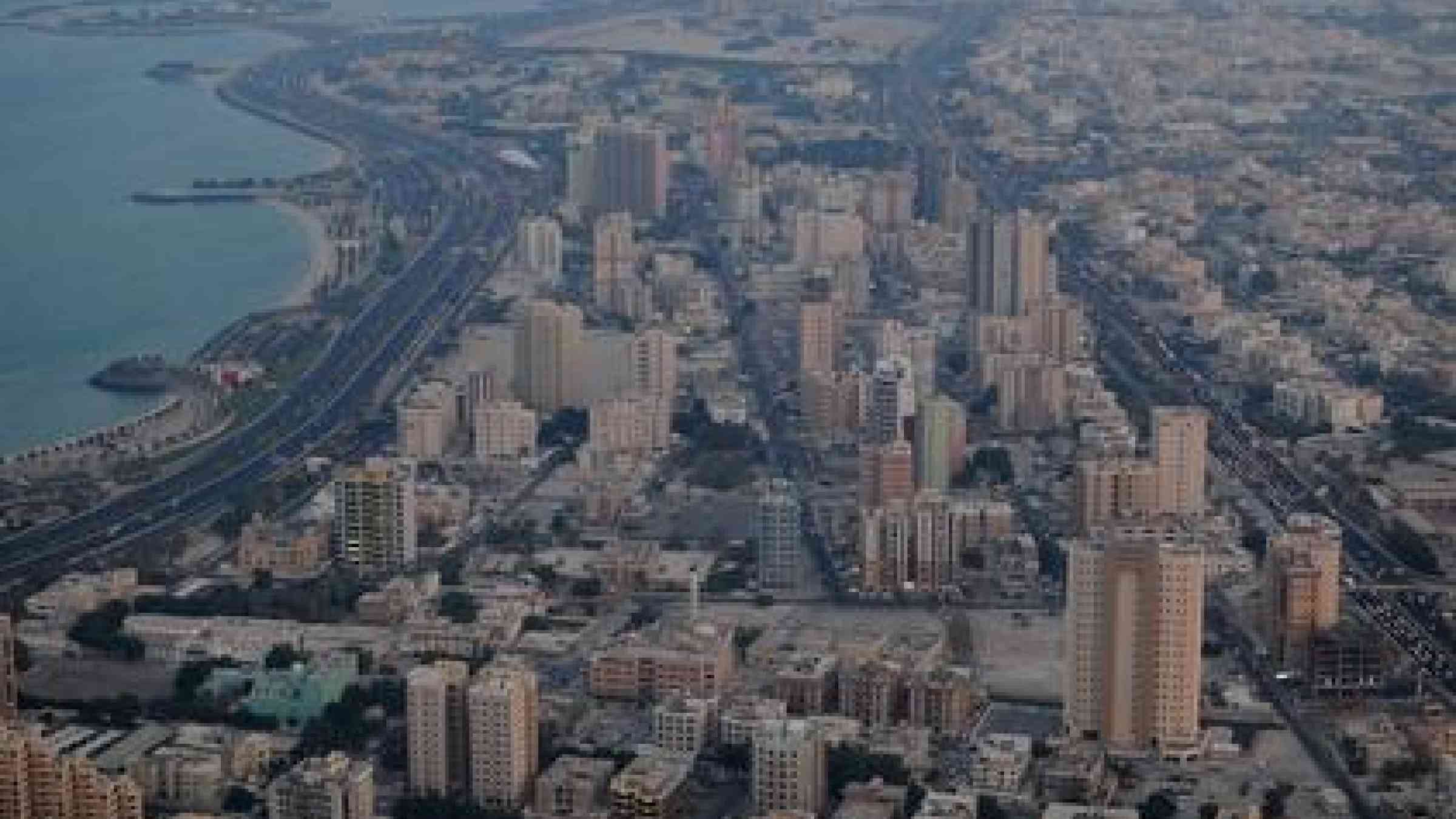City of Kuwait hosts major gathering on linking disaster risk reduction into urban planning and city development strategy in the Gulf States

Kuwait, 20 June - UNISDR, UNHABITAT and UNDP Kuwait organized a workshop on "Advancing disaster risk reduction and urban strategy in the Gulf States" in collaboration with the Capacity for Disaster Reduction Initiative (CADRI) and the International Society of City and Regional Planners (ISoCaRP). The workshop took place in Kuwait from 14-16 June 2011 and gathered more than 25 participants representing Ministries for Municipalities Affairs, disaster management authorities and representatives of cities from the Gulf region.
The workshop, implemented by UNISDR Regional Office for Arab States and UNHabitat in cooperation with CADRI, aimed at enhancing awareness and knowledge of targeted stakeholders on disaster risk reduction trends and policies in the context of urban planning and with recognition of increasing risks and challenges facing cities in a changing climate.
The event included an introduction to the concepts of risk reduction, global and regional framework and policies, including the Hyogo Framework for Action, the international road map to reduce disaster risk and losses, tools for identifying and assessing risk and vulnerabilities and methodologies for integrating disaster risk reduction and preparedness in urban strategies.
Participants also benefited from an introduction of the experience of Aqaba city, Jordan in integrating disaster risk reduction in the planning and development of the Aqaba Special Economic Zone and from Kuwait city on its commitment to integrate risk reduction measures in city development strategy.
UNISDR encouraged participants to follow the example of Bahrain and to officially declare a national focal point to implement the Hyogo Framework for Action, a proposal which was generally appreciated. Meeting participants from Kuwait also called for the establishment of a National Platform for disaster risk reduction to address current and future natural hazard risk in the Emirate.
The Arab region has many of the world's oldest inhabited cities, traditionally founded along coastlines and in highly dense and centralized areas. Urbanization in the Arab region is driven by population growth, rural-urban migration and economic opportunities. This rapid urban population growth is challenged with stressed resources, vulnerable conditions, increasing risk from climate change impacts, and limited capacity and resources allocated for integration of risk reduction into urban planning, economic and sustainable development policies.